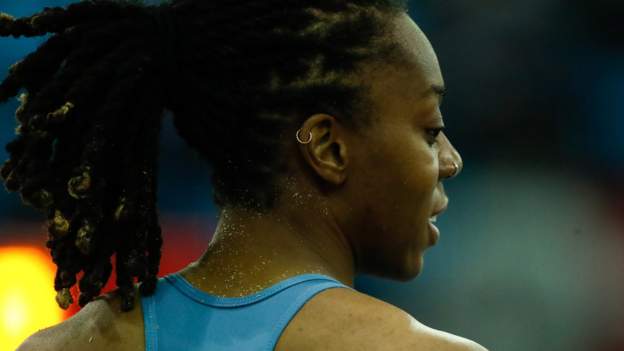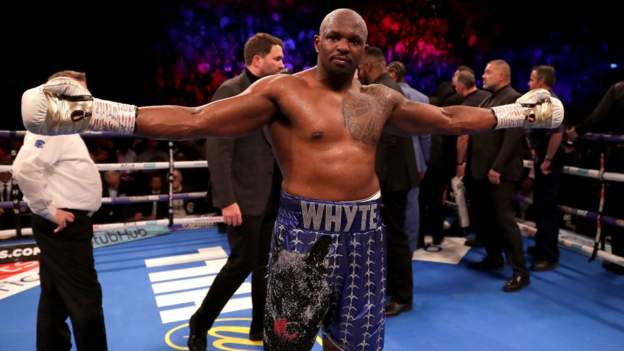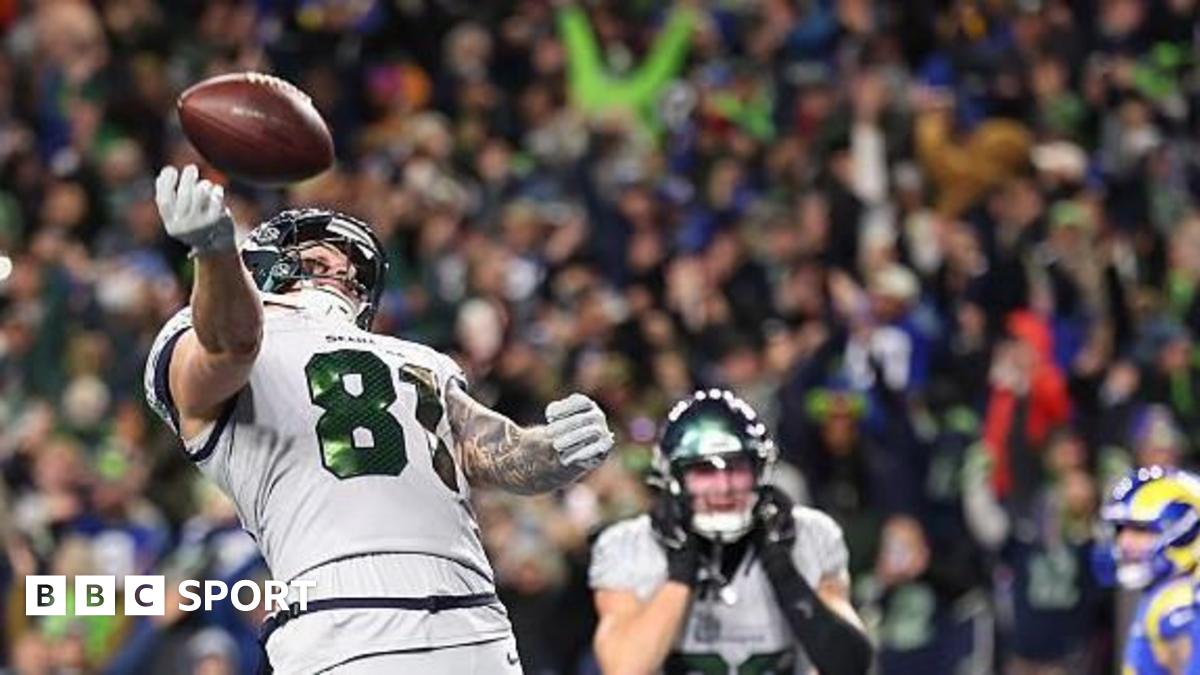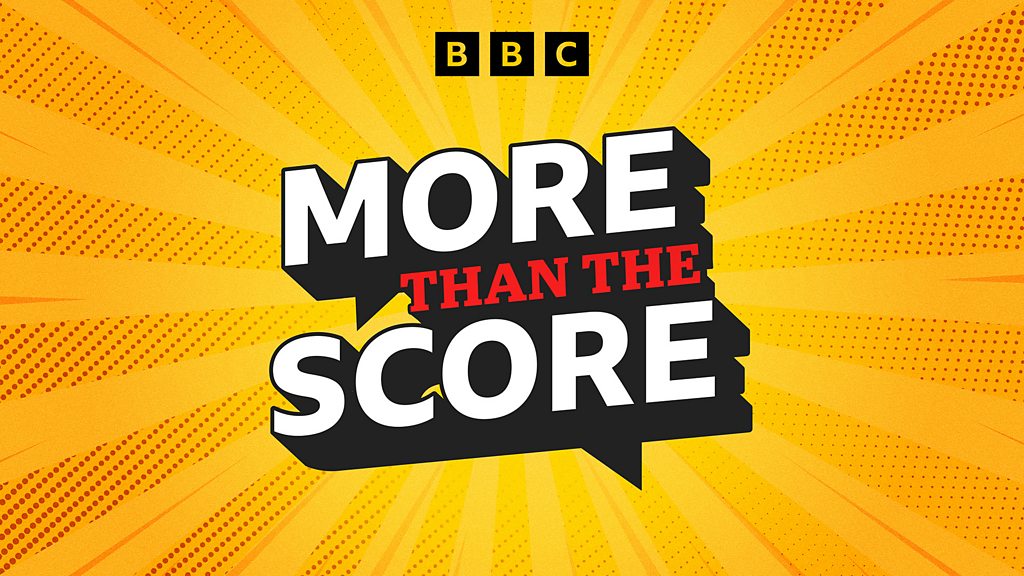At first, you don’t see it.
It’s October 2020, nine months out from the Olympics, and Lorraine Ugen is lying on a massage table. The British long jumper’s legs dangle off the end, her eyes are fixed on a point on the ceiling.
Ugen has just begun rehab after surgery to repair a hamstring that she had, by her own description, “torn off”. From across the room, physio Michael Giakoumis asks her to raise her leg and point her toes.
She does. And then you see it.
Her right leg, the one that bears several times Ugen’s bodyweight on take-off, and propels her down the long jump runway, through seven metres of clean air is, in her words, “a twig”.
Her lower leg has the same circumference all the way down – there is no curve or bulge. The calf muscle has withered to near-nothingness. It’s the same girth as her ankle.
As Ugen swings her leg and stares at the ceiling, qualification for the delayed Tokyo 2020 Olympics suddenly looks a long way off.
At this point, Ugen is 10 months short of her 30th birthday. People are telling her it might be time to retire from elite sport.
But not only did she make it to Tokyo, she is continuing to compete in the face of both fitness and financial challenges. This is the story of how.
‘Winning a medal told me I could compete at the elite level’
Ugen ignored her doubters. She pressed on and trained hard. Giakoumis, Helen van Kempen and the rest of British Athletics’ support team helped her to regain her strength. She made the British Olympic team.
She was unable to qualify for the long jump final in Tokyo, but she kept improving.
And then in March this year, she won bronze at the World Indoor Championships in Belgrade.
It wasn’t her first major medal. Six years before, she had won world bronze in Portland, Oregon. But, this time, the emotions were different.
“Secretly I enjoyed this one a little bit more,” she told BBC Sport.
“Winning a medal allowed me to know I could get back to the elite standard, that I could contend with the best in the world and get back on to the podium.
“It gave me confidence that I am good enough, back and ready to go.”
But that World Indoors campaign could have ended very differently.
Her first two jumps had been fouls. The cut – after which only the top eight jumpers continue – came after three. She had no room for mistakes. Another foul and she would be out of the competition without registering a mark.
It has been a problem throughout her career – keeping her footwork precise on the board as her sprint speed maxes out and the pressure cranks up.
“I was like, ‘Please don’t start this madness again! I need you to get this together’,” Ugen said.
“I knew I was in shape and had the ability to get on the podium.”
The hamstring was fixed, the calf was strong, but she needed something to soothe the most important muscle of all.
She turned to her coach in the stands. Dwight Phillips is a former Olympic gold medallist, a four-time world champion. He knew what to say. Ugen knew to listen.
“Normally people move further away from the board if they are fouling, but he told me to move in,” said Ugen.
“The psychology of it was that it squeezed me up, I had no more space, I had to put my foot down.
“In long jump, it goes hand in hand, the technical and having the faith in your coach.”
‘People see you on TV and assume you’re making big money’
Phillips can’t always be there, though – because alongside her fight for fitness, Ugen also has to make financial decisions.
She is on the top level of funding allocated by British Athletics, an arrangement worth a maximum of £28,000. But there still have to be compromises.
Picking up Phillips’ tab to travel to Europe from his Atlanta base is possible for some events, but not all. Physio sessions in the USA don’t come cheap. Gym advice may come via a search engine rather than a dedicated strength and conditioning coach. On the road, Ugen has to make a call between health and wealth when it comes to fast-food options.
Sponsors would help. But, at the moment, Ugen doesn’t have one. She was dropped by sportswear brand Spyder in December 2020.
But, just like on that massage bench, she didn’t take it lying down.
Ugen now competes in her own brand, one she designed, manufactured and models. It’s called Unsigned.
“It’s about building a community of athletes, so people don’t feel ashamed and have to hide the fact that they don’t have sponsors,” Ugen said.
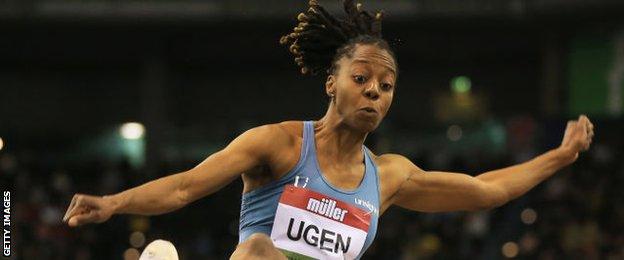
“People see you on TV and automatically assume that you are making big money. They don’t realise we are world-class athletes, winning medals, competing at the highest level of the sport, without a kit sponsor.”
The plan is to allow athletes to wear the brand and attract their own endorsement offers, while fans buy it and support the sport’s underdogs.
Unsigned first appeared on British runways at February’s Indoor Grand Prix in Birmingham. It will be back there on 21 May when Ugen takes on Olympic, world and European champion Malaika Mihambo in a stellar Diamond League field.
“It’s a really stacked line-up. In a World Championship year, it will be great to compete against some of the best girls in the world very early in the season,” said Ugen.
“Everyone is going to be looking to see what shape people are in, what everyone is looking like.”
As Ugen knows though, you can’t always see everything. The physical strain, the mental pain, the financial game – there is plenty that goes unseen.










